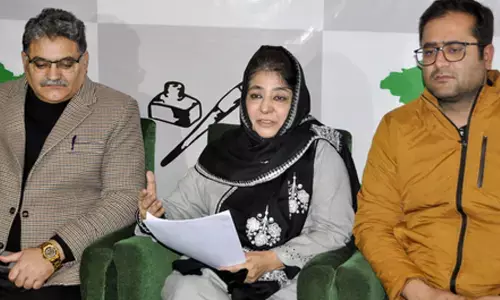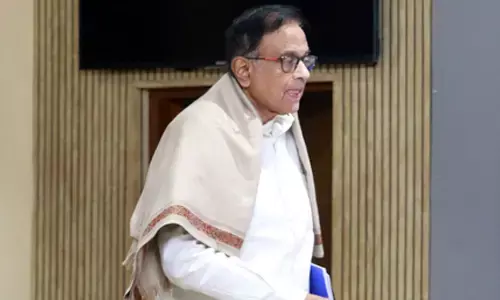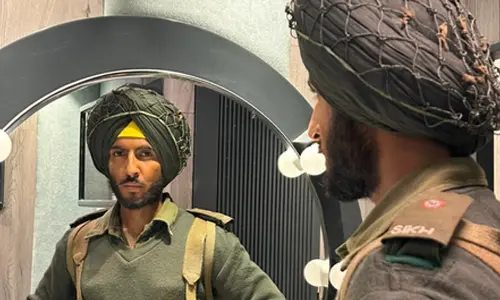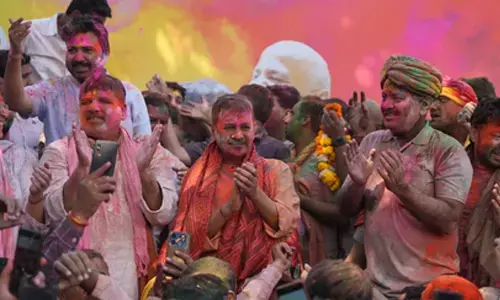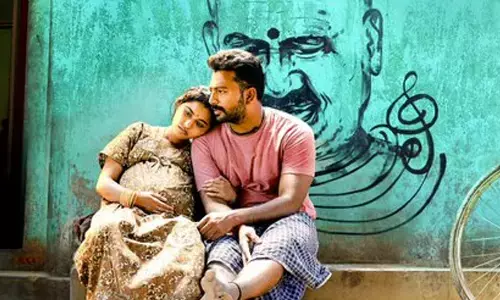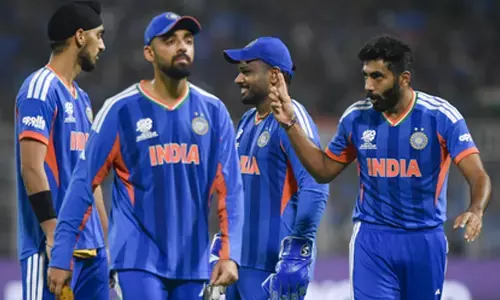Movies, a reality check on society

Movies, a reality check on society. Cinema is not just about fictional tales or entertainment; it is also a reality check for the society.
Cinema is not just about fictional tales or entertainment; it is also a reality check for the society.
Recently, I read a gut-wrenching article on Rajasthan’s Nirbhaya titled “Waiting for the 20th surgery”. The author unraveled horrifying details about the gang rape of a girl who was so brutally assaulted by six men in Jaipur in August 2012 that her vagina tore and merged with her rectum.
.jpg)
The girl was only 12-year-old the time.
Coincidentally, I ended up watching Nagesh Kukunoor’s “Lakshmi”, also based on a true story on child prostitution, during the same time and reiterating the fact that moviemakers, often attacked by the moral police for promoting crime through their cinematic work, make films that mirror society, where crime, especially against women, is on an upsurge.
Kukunoor is not the first filmmaker to take a keen interest in crime against women in reality to try to sensitise viewers on crime.
Jagmohan Mundhra’s “Provoked: A True Story” on domestic violence is the real-life journey of Kiranjit Ahluwalia, who moved to Britain from Punjab in India after marrying Deepak, and ended up being the victim of domestic violence.
After being tortured physically and sexually, Kiran killed her husband and ended up in jail. But she was freed on appeal and her case changed the face of British justice.
Before that Mundhra had brought on the screen another heart-wrenching tale of a rural woman through “Bawandar”, a film based on the true story of Bhanwari Devi, a rape victim from Rajasthan, and her fight to get justice.
It’s debatable whether films fan crime in the society, but movies do daringly unravel harsh realities on the big screen. Except that sometimes, the truth is harsher than what is shown.
Be it the crime committed in some murky lanes, dingy shanties or nightlife hot spots or in the highest strata of society, filmmakers do not hesitate from showing the truth.
Reacting to the rise in the crime against women, people have often blamed women for venturing out unescorted, especially after sunset - and inviting trouble.
But what would a woman do when a near and dear one sexually assaults her?
Recently, it was reported that a teen was raped by her father's friend in Delhi's Gymkhana Club; Mira Nair had showed in “Monsoon Wedding” that women are vulnerable in the confines of their homes through Ria’s
character.
Recently, in “Highway” director Imtiaz Ali touched upon a similar issue by showing how the protagonist, played by Alia Bhatt, is sexually abused by her own uncle.
Rajkumar Gupta had successfully brought on the big screen the Jessica Lal murder case through “No One Killed Jessica”. Model Jessica Lall was gunned down in a restaurant in the capital in 1999 and the director
decoded the sequence of events for the audience in the film.
If you go back in the past, there have been films like “Insaaf Ka Tarazu”, “Pratighat” and “Damini”.
It’s not that filmmakers’ focus only on women-centric topics, they scrutinise different types of crime - for instance, “Shootout At Lokhandwala” and “Shootout At Wadala” took a closer look at the Mumbai crime world and real life gangsters Maya Dolas and Manya Surve
respectively who were gunned down by the police.
The thriving coal mafia in Jharkhand was the theme of Anurag Kashyap’s two-series “Gangs of Wasseypur”, while Tigmanshu Dhula, in the biopic “Paan Singh Tomar”, showed how athlete Paan Singh Tomar turned into an outlaw.
Ram Gopal Varma told the story of Paritala Ravi, a murder accused and one of the most feared individuals in southern politics, through his “Rakta Charitra”, which was released in two parts.
So, movies are indeed a mirror of society!


